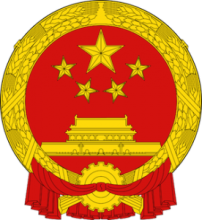Resource information
These Regulations are enacted in order to strengthen the management of land assets in Yanbian Korean Autonomous Prefecturerationally develop, utilize and manage land assets and protect land resources. The Text consists of 44 Articles divided into 9 Chapters: General provisions; Ownership of land assets; development and protection of land assets; Use of state owned land assets; Use of collectively-owned land assets; Acquisition of collectively owned land assets; land assets income management; Liabilities; Supplementary Provisions.Article 6-7 provide for the land assets state owned and collectively-owned respectively. After the determination of ownership of land assets, the land administrative departments of the people's governments at or above the county level shall register the ownership according to relevant regulations. People's governments at all levels must, in accordance with the needs of economic and social development and urban and rural construction, formulate the overall plan for the development and protection of land assets in their administrative region. Conscientiously protecting the cultivated land should be implemented when developing land assets.



